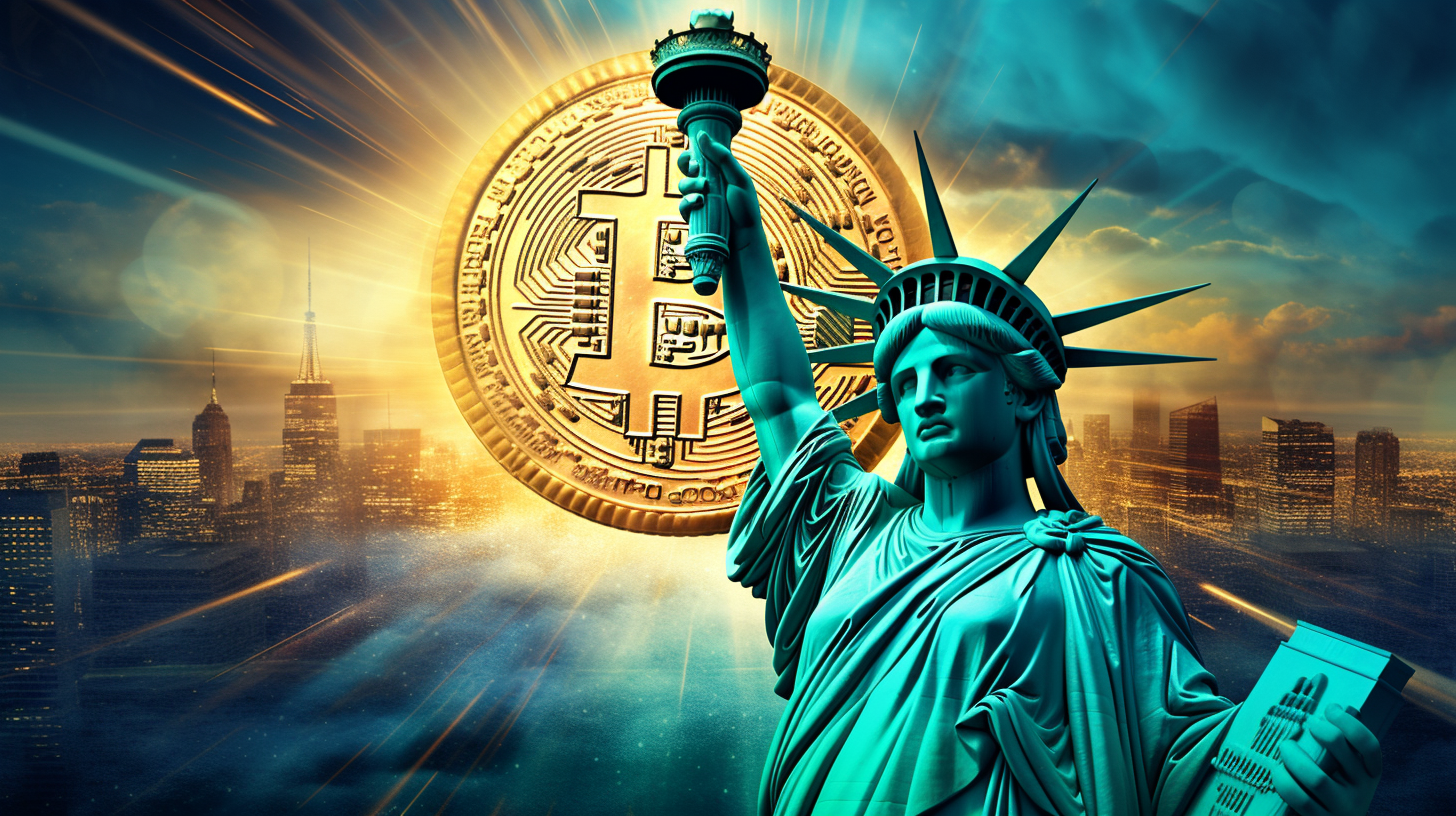There is so much to unpack with the Sam Bankman-Fried FTX fraud. Over the past few weeks, the groundwork has been laid for what will ultimately make a compelling Netflix drama about the now-disgraced, “King of Crypto”. However, the dramedy that is SBF would only be funny if there weren’t millions of users who were defrauded for what some estimate as much as $10 billion dollars.
The fraud allegations (haha @ allegations) of misuse of customer funds only scratch the surface of the largest financial Ponzi since Bernie Madoff. This who-done-it involves celebrity endorsements, brand advertising at a massive scale, Bahamian real estate in his parent’s name, SEC collusion, media contributions, and massive political donations.
How could anyone think that FTX was a complete fraud? They had their logo on the uniforms of MLB umpires and the Miami Heat arena. They had ringing endorsements from Kevin O’Leary, Tom Brady, Larry David, and Matt Damon. SBF appeared in front of congress in December 2021 (top of the market) as the crypto-Jesus who was going to lead us to salvation in a utopian financial system. At least Maxin Waters bought it.
SBF has been lauded as the “world’s most generous billionaire”. He’s appeared on CNBC to lay out his plans for crypto supremacy despite shaking like an Adderal addict.
Jim Cramer even went as far as calling Sam and FTX the “JP Morgan of this generation”. Nice call.
The FTX Injustice
In May 2020, George Floyd was murdered by Minneapolis Police officers over an alleged counterfeit $20. Twenty dollars.
SBF is currently doing a media tour and receiving standing ovations by New York Times stans despite “allegedly” stealing $10 BILLION DOLLARS.
Even the laziest internet sleuth can see that SBF donated millions ($40 million to be exact) to Democratic candidates. He claims he donated the same amount to Republicans, but conveniently those were made through untraceable dark pools. If you can believe that.
These donations, and previous Washington suck-up fests, have apparently bought SBF a lot of goodwill within the halls of congress and the justice system. While Gary Gensler was trying to catch headlines by going after Kim Kardashian’s NFT projects, and Ripple, the SEC had no problem with FTX issuing unregistered securities in the form of the FTT Token.
How do the US Justice system and regulators have any credibility left?
Why did FTX Fail?
FTX controlled most of the useless FTT tokens which reached a one-time valuation of $9 billion dollars. They claimed these tokens were liquid and included them in their liquidity buffer at market value. But this isn’t the reason.
The reason is simple. Despite SBF blabbering on about not knowing, not having all the data, and margin accounts in Twitter Spaces and other interviews, this is an old scam. It’s the same scam Charles Ponzi ran when he was selling investors on the idea of the appreciating value of rare stamps (which were worthless).
Also, this is not a “crypto scam”. It annoys me when people say this. There is a LOT of good being done in cryptographic technology and in the crypto industry to make financial transactions accessible to the entire world and harness the technology for good. Nothing about what SBF did was for good despite his pie-hole spewing lies about philanthropy. He not only harmed his customers but the real innovators who will find it hard to get capital because of his fraud.
Despite all Sam’s Ididntknowisms about FTX, the scam was simple. Customers deposited their funds with FTX, thought they were secure and not to be touched according to the terms of service, and then SBF funneled all those funds to the trading arm of FTX, Alameda Research, where his incompetent girlfriend gambled it away buying shit coins that plummeted in value.
Coinbase CEO, Brian Armstrong, put it even more succinctly:
Don’t let the lies SBF is spewing about account errors, poor record keeping, and Tweets from Binance CEO CZ as the reasons for the failure of FTX. Nope, those reasons aren’t close. The Bahamian Rhapsody gang stole customer funds and bought real estate and shit coins, until there was nothing left for those same customers.
Will Sam Bankman-Fried go to Jail?
In an unbiased, uncorrupt world, the answer is a resounding, yes. But where do you think we are?
Sam’s mommy and daddy are well-connected compliance lawyers and Stanford professors. In addition to that his political donations and foresight to set up FTX off-shore makes things a little more complicated.
Nevertheless, kiss-blowing Rep. Maxine Waters has kindly invited SBF to testify before the congressional Financial Services Committee. Despite reports that she won’t move forward with a subpoena, which she pushed back on, she says a subpoena is “still on the table”. Mmmhmm.
It’s been great how candid Sam has been about his fraud. Thankfully there are some Senators who deal with reality, who are expected to subpoena Bankman-Fraud to explain WTF happened.
Defenders of SBF
Sam Bankman-Fried committed fraud, as he so shakingly admitted, after being pressed by the ever-grandstanding, Coffeezilla. Here it is:
Despite this admission, SBF still has a clown car filled with defenders. First, there was billionaire hedge-fund manager, Bill Ackman. I mean how does one become a billionaire without screwing someone over in the process? SBF is definitely telling the truth that he committed fraud. I agree!
Then there was this gem when I woke up this morning. I don’t really know or want to know who this clown is. His Twitter profile mentions he’s a “CNBC Crypto Trader “. Whatever that self-bloviation means. He’s also the founder of Crypto Banter, which after a few minutes of research wasn’t hard to see it was a typical pump-and-dump YouTube channel. SBF was in quick agreement to perpetuate the fraud!
I mean, imagine this. You deposit $1000 USD on FTX. SBF steals it from you, but to compensate you, he gives you FTT2 Tokens valued at a fictitious $1000. You agree, and go to try to sell, but since a million other customers did the same thing you can only recoup $0.25. What a world.
Crypto Needs to be Cleaned Up
I’m sorry for your losses, but SBF is proof that the industry has been taken advantage of by rich VC trust fund kiddies, ex-consultants, and scammers. It is good that FTX went bust.
Centralized crypto needs to be regulated and rules put in place. I’ve spent years managing liquidity risk and valuing FTT tokens at market value in your liquidity buffer is criminal in itself (and actually would be criminal for most financial institutions under Dodd-Frank Enhanced Prudential Standards). Decentralized crypto and Bitcoin need to keep building toward the end goal – the elimination of bad actors.
The grime needs to be cleared from the industry so the true potential of cryptographic technology can be unlocked for the world. This is the future and the likes of SBF can’t steal that.

Disclosure: I own Bitcoin, Ethereum, Polygon, and other minor crypto positions. I have no money trapped in FTX and wouldn’t use Caroline’s money to buy FTT Tokens.


 Cannabis News1 year ago
Cannabis News1 year ago
 One-Hit Wonders1 year ago
One-Hit Wonders1 year ago
 Cannabis 1011 year ago
Cannabis 1011 year ago
 drug testing7 months ago
drug testing7 months ago
 Marijuana Business Daily1 year ago
Marijuana Business Daily1 year ago
 Education1 year ago
Education1 year ago
 Cannabis1 year ago
Cannabis1 year ago
 Education1 year ago
Education1 year ago
















